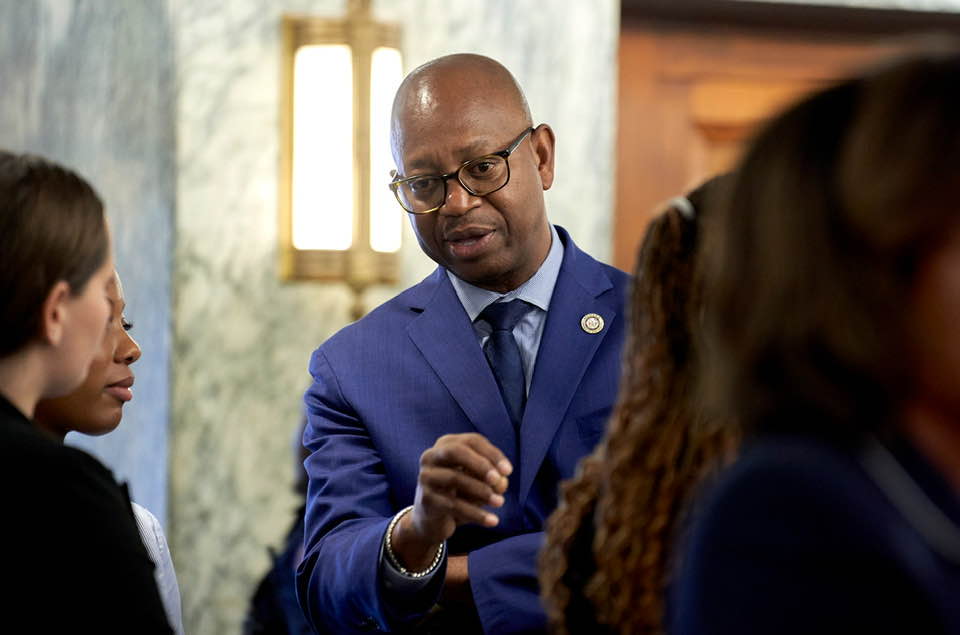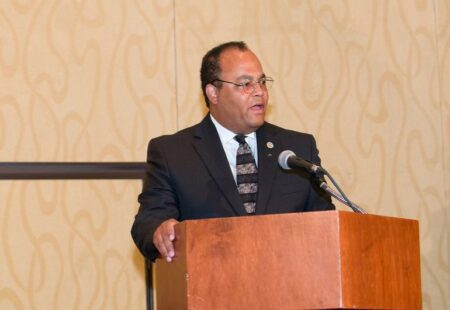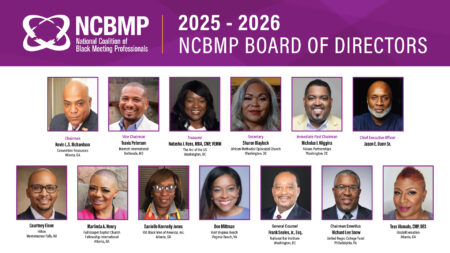The DOT’s October 3 rule ends 40 years of demographic protections. Black and women-owned firms must now prove discrimination individually—and time is running out.
(BALTIMORE – October 15, 2025) – On October 3, 2025, the U.S. Department of Transportation issued an interim final rule that fundamentally restructured the Disadvantaged Business Enterprise (DBE) program, eliminating the demographic presumptions that have anchored federal contracting access for Black-owned, women-owned, and other disadvantaged firms for four decades.
The consequences are immediate and severe. All existing DBE certifications are suspended. Firms must recertify by proving they have faced specific discrimination in their business history. The federal government can no longer set spending goals for DBE firms on new projects. And in a move that goes beyond recent SBA adjustments, the DOT explicitly prohibits agencies from even referencing race or gender when evaluating disadvantage claims—creating what critics call a “colorblind” standard that fundamentally changes how the program operates.
For Maryland, home to one of the nation’s largest cohorts of certified DBE and ACDBE firms, the transition is creating chaos and confusion.
“We knew a year ago it was coming,” said Wayne Frazier, executive director of the Minority and Women-owned Business Contractors Association (MWMCA). “But the reality is just hitting now.”
Frazier outlined the stakes plainly: DBE firms that built decades of capacity are now suspended from certification. To recertify, they must submit new documentation proving discrimination. Meanwhile, the rule opens the door for previously excluded firms—including white male-owned businesses—to apply for DBE status by claiming their own history of discrimination.
“It opens up the door for white firms that were previously excluded to say that they were discriminated against,” Frazier said. “Now white male firms can become DBEs.”
The immediate impact is disorienting. Existing projects like the Key Bridge reconstruction continue under old contract frameworks, but all new federal projects lose DBE spending goals. Smaller firms with limited compliance infrastructure face the heaviest burden: assembling personal net worth statements, documenting historical discrimination across decades, and meeting new evidentiary standards with little guidance.
“I’ve got white women-owned businesses asking me what we’re going to do,” Frazier said. “These are businesses bringing in $10-12 million a year. They’re asking: ‘Do we need to hire a lawyer? This is devastating to my business.'”
The administrative challenge is compounded by silence from state and federal officials. Neither has provided clear guidance on recertification procedures, timelines, or how Maryland will adapt its own contracting policies.
“There was no communication from the federal government or the state thus far,” Frazier said. “I want to know how we are going to respond.”
Delegate N. Scott Phillips, Maryland House of Delegates District 10, acknowledged the frustration but urged action over complaint.
“While I am disappointed in the ruling, there is no time to simply complain,” Phillips said. “We must adapt and move forward while fighting back.”
Phillips emphasized that Maryland’s DBE ecosystem is too valuable to lose. “Maryland is home to one of the largest and most active cohorts of certified DBE and ACDBE firms in the nation. Without clear and timely guidance, these firms risk losing continuity in their eligibility, access to contracting pipelines, and hard-earned capacity built over decades of policy progress.”
He called for immediate state action: “An immediate, coordinated state response will help ensure Maryland’s firms remain competitive, confident, and compliant during this transitional period.”
Joe Gaskins agreed. The Co-chairman of the Maryland Business & Clergy Partnership and Founder of the Prince George’s Contractors & Business Association said, “First, we must understand that this is a well planned and orchestrated attack on our Federal DBE/MBE economic program that could have a devastating impact on the black business world forever.”
He added, “The attack did not originate from within the government, and neither should the counter attack.
Elected leadership will come and go, but black business activism is a commitment. This is a cancer that will eat to the core of previous black economic progress, and it will take a team of the best experienced business activists working with progressive elected leadership to resolve. No one person or entity can solve this…it will take a village. Leave your egos at home, and let’s begin the task.”
The clock is ticking. Firms must recertify under new rules or lose eligibility. Federal and state agencies have provided minimal guidance. And Maryland’s business leaders—who have spent decades building competitive capacity—are now facing a legal and administrative labyrinth with little institutional support.
The question now is whether Maryland will step in with technical assistance, clear policy direction, and resources to help firms navigate the transition—or whether years of progress in minority and women-owned business development will stall.










